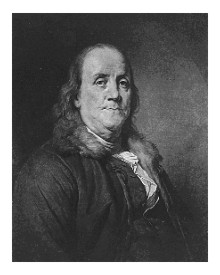
Top: George Washington. Commander of the Continental Army and 1st President of the U.S.A. Courtesy NARA. Right: Surrender at Yorktown. Courtesy Library of Congress.
Sponsor this page for $100 per year. Your banner or text ad can fill the space above.
Click here to Sponsor the page and how to reserve your ad.
-
Timeline
1783 Detail
July 8, 1783 - Massachusetts Supreme Court outlaws slavery, citing the state Bill of Rights "all men are born free and equal."

Now a widow, the wife of James Caldwell married Nathaniel Jennison, with Walker moving to Barre, Massachusetts with Jennison and his wife in 1769. Quock Walker had been promised his freedom by the Caldwell's by the age of twenty-five by James, then twenty-one by his widow. Jennison denied that promise. With the American Revolution coming to a close and now twenty-eight years of age, Walker left the Jennison farm and hired himself out to Seth and John Caldwell, brothers to his original owner. Jennison seized Walker, beat him, and brought him back from the Caldwell farm to confinement.
Three court cases would ensue. The first of which dealt with the question of assault and battery in the Worcester Court of Common Pleas. Quock Walker sued Jennison on those accounts, won the case, was declared free and awarded fifty pounds for his damages. Walker had asked for three hundred pounds. Jennison simultaneously sued the Caldwell's for enticing his property away, was awarded twenty-five pounds, but that ruling was overturned by the Supreme Judicial Court. In 1783, the question would come to a head in Commonwealth versus Jennison. The Commonwealth brought a criminal indictment against Jennison for the original assault and battery in April 1783. In that case, the Attorney General would argue that Jennison had attacked a free man, due to the promise by Walker's former owner that Walker would be set free at twenty-five years of age. Jennison knew of that promise. But Chief Justice William Cushing went even further; he stated that the 1780 Massachusetts Constitution declared all men "free and equal," thus the owning of slaves as property with freedom to treat that property as one sees fit, was illegal anyway, no matter whether you thought had had been freed or not. The jury agreed. Jennison was fined forty shillings.
By the 1790 census, no slaves were reported in Massachusetts, although chattel slavery, now restated as indentured servitude, still existed in some form. There had been four thousand five hundred slaves reported in the 1754 census.

Formal Opinion
There was no formal opinion written in the case of Commonwealth versus Jennison. Chief Justice Cushing set forth the argument that all men were born free and equal in the state due to the Constitution in his instructions to the jury. Cushing would be made one of the five original Associate Justices of the United States Supreme Court by President George Washington, nominated in 1786, confirmed by the Senate in 1789.
Court Instructions, Commonwealth Versus Jennison
Instructions in Quock Walker vs. Nathaniel Jennison, William Cushing
.... As to the doctrine of slavery and the right of Christians to hold Africans in Perpetual servitude, and sell and treat them as we do our horses and cattle, that (it is true) has been heretofore countenanced by the Province Laws formerly, but nowhere is it expressly enacted or established. It has been a usage - a usage which took its origin from the practice of some of the European nations, and the regulations of British government respecting the then Colonies, for the benefit of trade and wealth. But whatever sentiments have formerly prevailed in this particular or slid in upon us by the example of others, a different idea has taken place with the people of America, more favorable to the natural rights of mankind, and to that natural, innate desire of Liberty, which with Heaven (without regard to color, complexion, or shape of noses-features) has inspired all the human race. And upon this ground our Constitution of Government, by which the People of this Commonwealth have solemnly bound themselves, sets out with declaring that all men are born free and equal ---- and that every subject is entitled to liberty, and to have it guarded by the laws, as well as life and property - and in short is totally repugnant to the idea of being born slaves. This being the case, I think the idea of slavery is inconsistent with our own conduct and Constitution; and there can be no such thing as perpetual servitude of a rational creature, unless his liberty is forfeited by some criminal conduct or given up by personal consent or contract... Verdict Guilty.
Photo above: Lithograph of Worcester, Massachusetts, 1835-1841, P. Anderson, R. Cooke, T. Moore's Lithography. Courtesy Library of Congress. Below: Montage of the City of Boston, circa 1778, Franz Xaver Habermann. Courtesy Library of Congress. Official portrait of Associate Justice William Cushing, date unknown. Courtesy Wikipedia Commons. Sources: Massachusetts Historical Society; "An Imperfect Union: Slavery, Federalism, Comity," 1981, Paul Finkelman; Encyclopedia.com; "The Quock Walker Case, Instructions to the Jury," PBS; "Quock Walker, Mumbet, and the Issue of Slavery," 1968, Arthur Zilversmit, The William and Mary Quarterly; Wikipedia Commons.








